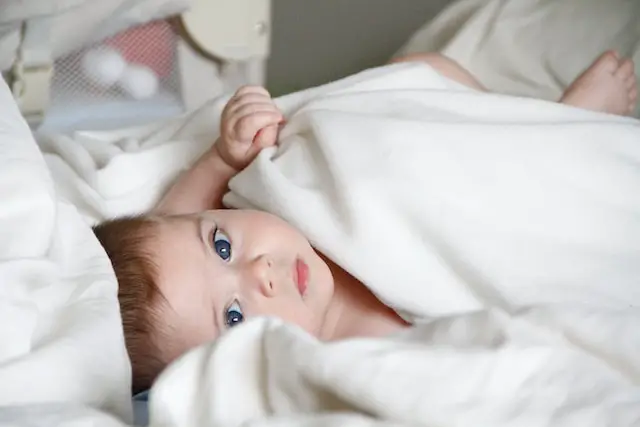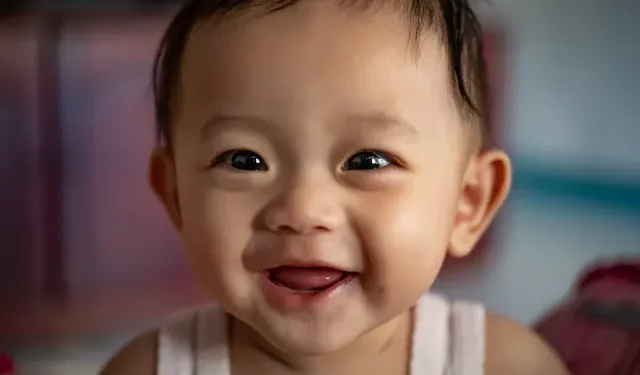What Does It Mean When Babies Are Drawn To You
In the magical world of babies, There’s something that’s both intriguing and uplifting: the magnetism certain babies seem to feel towards certain people. You may have observed it yourself. When a child looks at you with a squint or breaks into an irresistible smile, or opens their arms with excitement as if they’ve discovered their ideal person. What exactly is it that babies are attracted to you, and why is this happening?
In this blog, we’ll dive into the captivating world fascination of babies. We’ll look into the scientific basis of this phenomenon, unravel the signals that signal the child’s fascination and identify the underlying factors in play. You may be an adult, a caregiver, or just someone interested in the magical bond between babies and certain people. This study will help you understand the complex bonds that develop in the early years of our lives.
So, if you’ve wondered why babies seem to gravitate toward particular people, and what this attraction instinctual is, then join us on this informative adventure as we discover the reasons why babies draw to you.
Understanding Infant Attraction

The fascination that infants display toward certain people is an interesting aspect of human development in the early years. To fully comprehend this phenomenon, we need to explore the most fundamental aspects of attraction for infants:
1. Instinctual Nature
Baby’s are born having a set of habits and preferences that to ensure their well-being and survival. This includes the desire for seeking out comfort, love and food.
2. Evolutionary Significance
The attraction of infants is rooted in evolutionary history. Children naturally seek out caregivers as a way to survive and ensure that they receive needed care and protection during the early years of life.
3. Emotional Connection
Attraction isn’t just an emotion that is physical, but it’s also a deeply emotional. Babies are drawn to people who give them an assurance of safety as well as love and emotional help.
4. Nonverbal Communication
Babies depend on non-verbal signals and sensory experiences to communicate with the world around them. The attraction they feel to certain people is usually manifested by eye contact, body language, and touching.
5. Individual Variability
It is important to realize that every baby is not drawn to the same group of people. The preferences of a baby to another are determined by a myriad of variables, including the temperament of the baby and his first experiences.
Understanding the evolutionary and instinctual aspects of attraction for infants helps in understanding the subtle signals and
What Does It Mean When Babies Are Attracted To You
If babies are attracted by the person you are, that could be a sign of many things.
- You possess a gentle and gentle spirit. Babies are extremely sensitive to the energy of people surrounding them. They know when a person is gentle and kind and feel drawn to them.
- You have a soothing and calm voice. Babies also like peaceful and gentle voices. If you speak with a soft voice, it can make children feel secure and safe.
- You’re playful and entertaining. Babies are a joy to play with and interact with others. If you’re fun and with them, they’re more likely to attract to you.
- You’re surrounded by a familiar scent. Babies also like familiar scents. If you are wearing an aroma that is familiar, such as a cologne or perfume, or you have a scent that is similar to their parents, they’ll be more likely to draw attention to them.
How Do You Tell If Babies Are Drawn To You

Babies have their own unique method to express their desire and affinity to certain individuals. Knowing these signs is crucial to understand why a baby may be attracted to you:
1. Smiles and Laughter
One of the best indications of a child’s fascination is their smile and laughter whenever they meet you. This genuine expression of happiness is a reflection of their happiness and comfort in the presence of you.
2. Eye Contact
Babies are known to engage in long eye contact when they feel attracted by one. They focus their eyes at the person they are looking at, like they are trying to connect and communicate to the deeper level.
3. Reaching Out
When a child reaches toward you, whether it’s to touch your face or receive a hug, that’s an obvious signal of their desire. It’s an affirmation of their trust and confidence.
4. Calm and Content Behavior
A child who is attracted by you is likely to behave calmly and happily when they are in your presence. They could be more peaceful or less agitated and display less fussiness.
5. Vocal Interaction
Babies can coo, babble, or even make happy noises whenever they’re with someone they love. This is an act of affection and communication.
6. Seeking Physical Proximity
Infants usually prefer to be in physical proximity to the one they love. They might snuggle, cuddle, or hug when they are being held, looking for comfort and security.
7. Reduced Anxiety
If your baby is attracted to you, they’re less likely to show symptoms of distress or separation anxiety when you’re nearby. They feel secure and safe when they are in your company.
8. Responsive to Soothing:
If a baby is attracted by you might be more attracted to your soothing methods. Your presence will help soothe their anxiety or stress.
Benefits Of A Baby’s Attraction
The inclination that infants have towards certain people has a purpose that is significant and provides a variety of benefits for both the child and for the caregiver:
1. Emotional Well-being
Babies who are attracted to one’s emotional well-being. They feel safe, valued, loved, and appreciated, and this contributes to their overall happiness and well-being.
2. Attachment and Bonding
The attraction builds the bond between the child and the caregiver. This bonding is the foundation for positive relationships and emotional growth throughout the course of life.
3. Trust and Security
When a child is drawn to a person, they acquire an intense confidence and sense of security in the presence of that person. This trust is crucial to their psychological and emotional development.
4. Enhanced Social Development
The desire to be around caregivers or people provides infants with the opportunity to build social abilities. They learn about emotions, relationships, and how to communicate.
5. Reduced Stress and Anxiety
Babies who are attracted by people tend to feel less anxiety and stress. They know that they can rely on their caregivers to provide comfort and help during moments of stress.
6. Better Sleep Patterns
A strong desire to be the caregiver could lead to more restful sleep patterns for infants. They are comfortable and secure which makes it easy for them to sleep and remain asleep.
7. Cognitive Development
Attachment and emotional security are key to the development of cognition. If a child is attracted to a person, they are more open to learning and exploring.
8. Healthy Self-esteem
The attention and affection received from the person they love creates a positive self-image and self-esteem for the child.
9. Ease of Care
Caregivers who are naturally appealing to babies may have a better chance of attending to the needs of their child because the child is more cooperative and happy.
10. Strengthened Family Bonds
The attraction that a child has toward family members like grandparents or parents builds the bonds between families and promotes an atmosphere of solidarity and love among the members of the family.
Recognizing and appreciating the advantages of a baby’s appeal emphasizes the importance of keeping these bonds in good shape and maintained. It highlights the effect that a nurturing and secure bond can have on a child’s growth and well-being throughout his life.
Conclusion
In the smitten world of infants, the attraction that they display towards certain people is proof of the complex bonds that develop throughout their first years of development. Understanding the reasons why children are drawn to certain people isn’t just an academic pursuit but a deep look at the underlying causes of emotional well-being, attachment, and human connections.
When a child smiles or reaches out and stares intently at you, it’s not just showing affection; they’re expressing their trust and confidence in you to ensure their safety and well-being. The bond is beneficial for many reasons, including improved emotional well-being and cognitive development to creating strong bonds with your family.
While we are grateful for these times, keep in mind that the love a baby experiences towards us is a treasured present, a reflection of the security, love, and security we provide to their world. It’s a reminder of the significance of these relationships early on for shaping our future young children and our own lives.


















